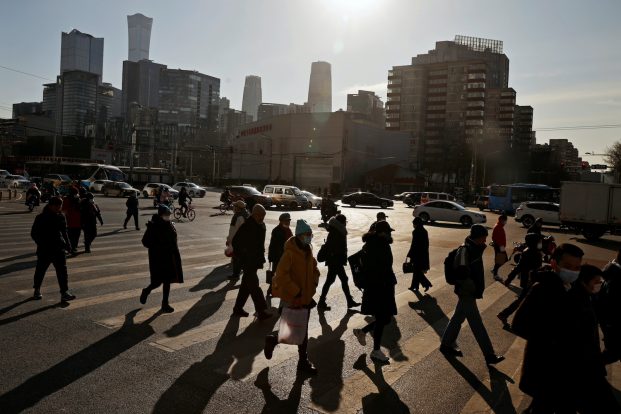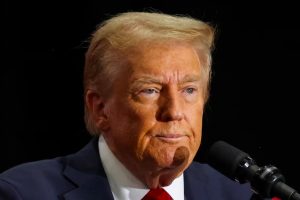A Chinese economic turnaround will need big policy measures, forceful and comprehensive easing, significant stimulus, better Sino-US relations and even government backstops in the housing and stock markets.
That’s the view of analysts at Goldman Sachs, as global investors in China head for the exits in the world’s second-biggest economy, sending its stock market crashing.
Markets in Hong Kong and Shanghai tumbled on Monday – the Shanghai index marking its worst day since April 2022 – as investors retreated from what was a ‘must have’ country in global portfolios just a year ago.
The selling seemed to subside on Tuesday as Chinese Premier Li Qiang chaired a cabinet meeting and it was reported authorities were considering a package of measures to stabilise the market.
Also on AF: In New Comic, China Signals ‘Foreign Threat’ to its Rare Earths
This week’s selloff was a culmination of months of frustration over the direction of the economy, particularly the often-opaque regulatory changes that thwarted China’s post-pandemic recovery last year.
China’s benchmark CSI 300 Index has slumped 47% since it peaked in February 2021, while the Hong Kong HSI stock index has sunk 49%. In contrast, Japan’s Nikkei Average and the US benchmark S&P 500 are up 24% each.
The Shanghai and Shenzhen exchanges have wiped out $3 trillion of value since the end of 2021.
Tony Roth, chief investment officer at Wilmington Trust Investment Advisors, plans to scale down his already underweight position on China due to a loss of confidence in the country’s economic activity and regulation.
“In general, our emerging markets managers are underweight China, and we are increasingly picking and working with managers that have greater underweights to China,” he said.
Beijing’s Inconsistent Support
Any hopes that 2024 will be different were nipped early by hints from authorities that they will overlook short term hiccups as they pursue healthier, long-term growth.
Support for the battered property sector that underpins much of the economy has also been fitful, even as the Communist Party has vowed to boost oversight of the country’s $61 trillion finance industry and local governments.
While investors have flocked to India, Japan and other emerging markets, some overseas money still remains in China, belonging to pension funds and others whose products are indexed to MSCI’s emerging market index, of which China comprises more than 26%.
Estimates from the Institute of International Finance show a $82.2-billion outflow from China portfolios in 2023, while emerging markets excluding China saw $261.1 billion in non-resident portfolio inflows.
- Reuters with additional editing by Sean O’Meara
Read more:
Losses on $50bn Leveraged Products Behind China Stocks Plunge
China Looking at Further Moves to Prop up its Slumping Markets
China Warns Officials Against Falsifying Economic Data
Mortgage Delinquencies in China Soared by 43% in 2023
























